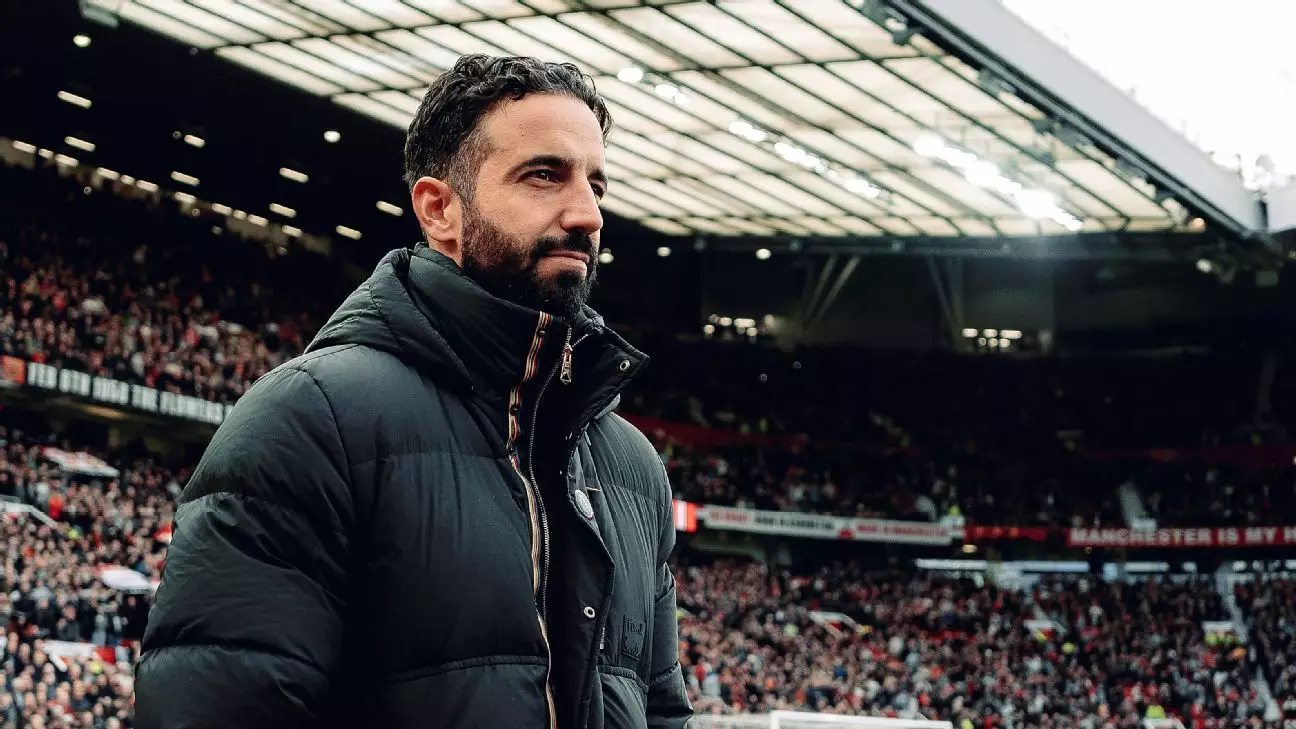On a bright November day, Ruben Amorim made his debut as Manchester United’s new head coach, touching down at Carrington with palpable excitement. Accompanied by the club’s chief executive, Omar Berrada, and sporting director Dan Ashworth, Amorim exuded optimism, evident in his beaming smile as he remarked on the uncharacteristically sunny weather for the month. This initial welcome, however, was a facade that would soon give way to the stormy realities of high expectations and intense scrutiny within the Premier League.
The Storm Clouds Gather
Just two weeks later, the clouds rolled in, symbolizing the challenges Amorim would face. The initial brightness of his tenure was overshadowed by a string of difficulties, including the departure of Ashworth, disagreements surrounding the Premier League’s LGBTQ+ initiative, and the controversial rise in ticket prices stemming from Sir Jim Ratcliffe’s leadership. Compounding these challenges was the critical task of revitalizing an underperforming squad facing daunting fixtures during the hectic festive period, with nine matches scheduled in December alone. The disheartening back-to-back losses to Arsenal and Nottingham Forest added fuel to the fire, amplifying the gloom surrounding the club.
Amorim’s journey thus far has highlighted the complexities of managing a top-tier football club like Manchester United. After just a month on the job, he candidly acknowledged that the scale of the challenges was far greater than he initially anticipated. Berrada, during Amorim’s hiring process, had been straightforward about the expectations, but little could prepare the 39-year-old for the whirlwind he was stepping into. His five games yielded a mixed performance record and left the new coach grappling with the realities of a squad low on confidence.
Adjustment to a New Leadership Style
Upon taking over the managerial reins, Amorim opted to enhance his limited training time through tactical walkthroughs, uniquely designed to address various game phases. Unlike his predecessor, Erik ten Hag, who often relied on individual meetings, Amorim preferred a more collective approach. He believed in fostering a team spirit, which reflected in his decision to support players in their choice to forgo LGBTQ+ jackets ahead of their match against Everton. His philosophy was clear: unity in decision-making was paramount.
While Amorim embraces his role as a motivating figure, he also knows the importance of discipline. His youth and charisma allow him to relate to players, understanding the balance between being firm and friendly. He has adopted unconventional methods post-match, allowing players to deconstruct games collectively and only addressing them the day after—giving both parties time to process their feelings. This approach aims to foster a comfortable atmosphere in which players can express themselves, leading to a sense of ownership amongst the squad.
A Balancing Act During A Hectic Schedule
As the festive fixture list loomed, Amorim found himself navigating a taxing schedule while being vigilant about player fitness. He employed performance data to make informed decisions on player rotations, mindful of the injuries that plagued Ten Hag’s tenure. Knowing that the wrong approach could deep-six his nascent career at United, Amorim aimed to strike a delicate balance between maintaining performance levels and avoiding burnout.
In contrast to moving quickly to engage the entire squad in running drills and physical conditioning, Amorim knew better than to overhaul fitness regimes introduced by a predecessor. Instead, he focused on boosting confidence and camaraderie within the squad—a feat required when evolving from a struggling team.
Embracing the Pressures of a Legendary Club
Despite the overwhelming nature of his new role at one of football’s iconic clubs, Amorim remained committed. He continues to attend media obligations with the same cheerful demeanor, even taking the time to connect with the press. When asked for a second take during an interview, he humorously offered that his off-field presence might merit an Oscar. However, beneath that jovial exterior is an unwavering focus on transforming the team’s fortunes.
A Long Road Ahead
Ruben Amorim’s first month at Manchester United has been a whirlwind of emotions, lessons, and growing pains. While the challenges he faces are substantial, so too are the opportunities ahead. The potential he has shown to unify his team and adopt innovative strategies provides a glimmer of hope amidst uncertainty. Yet, as the fixtures pile up and the stakes grow, Amorim will need to adapt, learn, and direct Manchester United back to the heights that their storied history demands. The coming weeks will test him, but they might also reveal the promise of a bright future for both Amorim and the club.

Leave a Reply